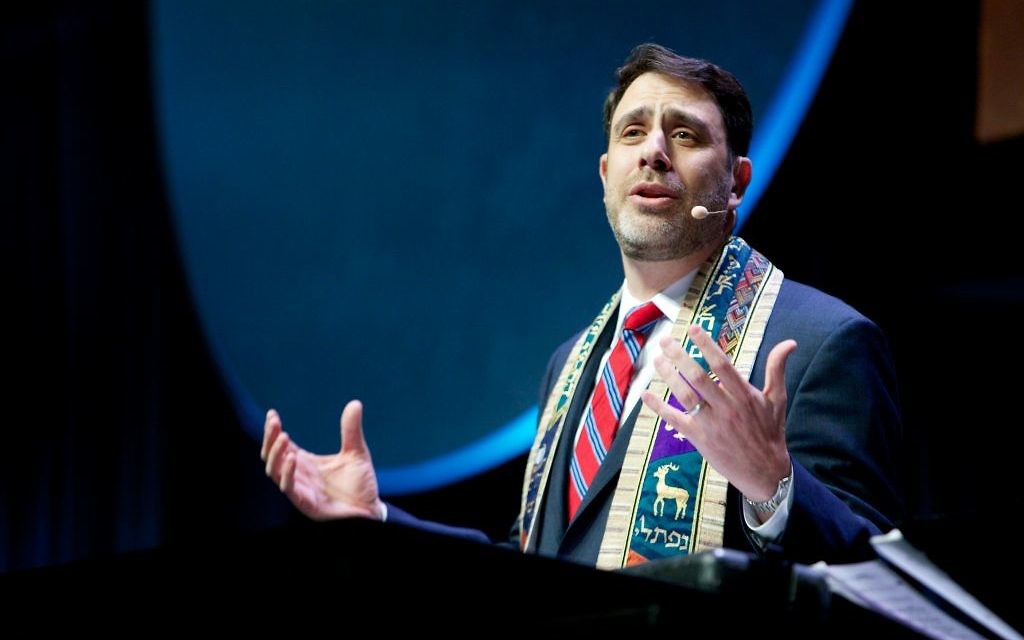Social Action on Political Inclusion
Sunday afternoon, Dec. 10, saw the launch of the Rothschild Social Justice Institute.
The Temple launched its Rothschild Social Justice Institute with a series of insistent messages Sunday afternoon, Dec. 10, about the need for Atlanta’s first and largest Jewish congregation to keep striving to improve the world, as it has done throughout its 150 years.
But amid comments from Rabbis Peter Berg, Alvin Sugarman and David Spinrad, institute chair Kent Alexander, and keynote speaker Sally Yates — the latter two of whom, both former U.S. attorneys, looked past current trouble in Washington to imagine the great things The Temple will accomplish in social justice the next 25 to 50 years — no words were more necessary than those delivered by Rabbi Bill Rothschild, the son of the institute’s namesake, Rabbi Jacob Rothschild.
The younger Rabbi Rothschild, who attended the formal opening lunch with his mother, the priceless Janice Rothschild Blumberg, told the more than 200 people spread around the social hall that it’s not enough to be inclusive of people who differ in race, faith, gender, sexual orientation and national origin if the institute is to “live up to Dad’s memory.”
Get The AJT Newsletter by email and never miss our top stories Free Sign Up
That’s the memory of The Temple’s senior rabbi from 1946 to 1973, the man who pulled not only his Reform congregation, but in many ways his entire city into the age of integration. It was the elder Rabbi Rothschild who refused to let The Temple stand on the sidelines while Jim Crow oppressed people of color, even at a time when, as Rabbi Sugarman said Sunday, it was dangerous just to pronounce the word “negro” as it’s spelled instead of slurring it into the notorious n-word.
Rabbi Rothschild’s activism made The Temple a target, resulting in the bombing in 1958. His efforts united 80 clergymen behind the pro-civil-rights Ministers’ Manifesto. His drive compelled Atlanta to hold the South’s largest integrated civilian dinner in 1965 to honor his friend Martin Luther King Jr. for winning the Nobel Peace Prize.
As Rabbi Sugarman, an Atlanta native, said, Rabbi Rothschild simply meant “everything.”
But his son said The Temple has reached a point of internal strife that exceeds the disputes over civil rights 60 years ago, all because of politics. For many, Rabbi Rothschild said, you can’t be a good Jew, or at least a good Reform Jew, unless you recognize that one party alone serves G-d’s will and that the other is evil incarnate.
“Never before … has the minority in our own congregation felt the condescension and the ostracism of the majority,” he said. “If my dad were alive today, he would be sad.”
Rabbi Rothschild noted that congregants happily overlook extreme differences to talk with Muslims and even Presbyterians, whose national organization’s double standards toward Israel and Jews “would make the Spanish Inquisition proud.”
For those non-Jews, he said, we treat people as individuals instead of overgeneralizing, we listen to them, and we recognize that the humanity in each person is a child of G-d. But we don’t grant the same courtesy to fellow Jews who get their news from different sources.
Rabbi Rothschild warned that the institute named for his father and endowed by the Arthur M. Blank Family Foundation will fail unless it becomes a safe place for anyone who wants to work on social justice — now in the areas of minor sex trafficking, the environment and climate change, Jewish-Muslim relations, LGBTQ inclusivity and equality, poverty and homelessness, public education, racial justice, refugee resettlement, sensible gun safety, and women’s rights, with the possibility and even the expectation of more issues in the future.
But the rabbi’s warning could have applied beyond one social justice institute to our synagogues and indeed our people in general. We have survived 4,000 years despite betrayals and bloody battles. Surely we don’t need to see the world through the same political lens to share the task of applying the Torah’s lessons as G-d’s partners in creating an ever-better world.
And if the others in that room took Rabbi Rothschild’s words to heart and share his message, the institute named for his father is already a success.





comments